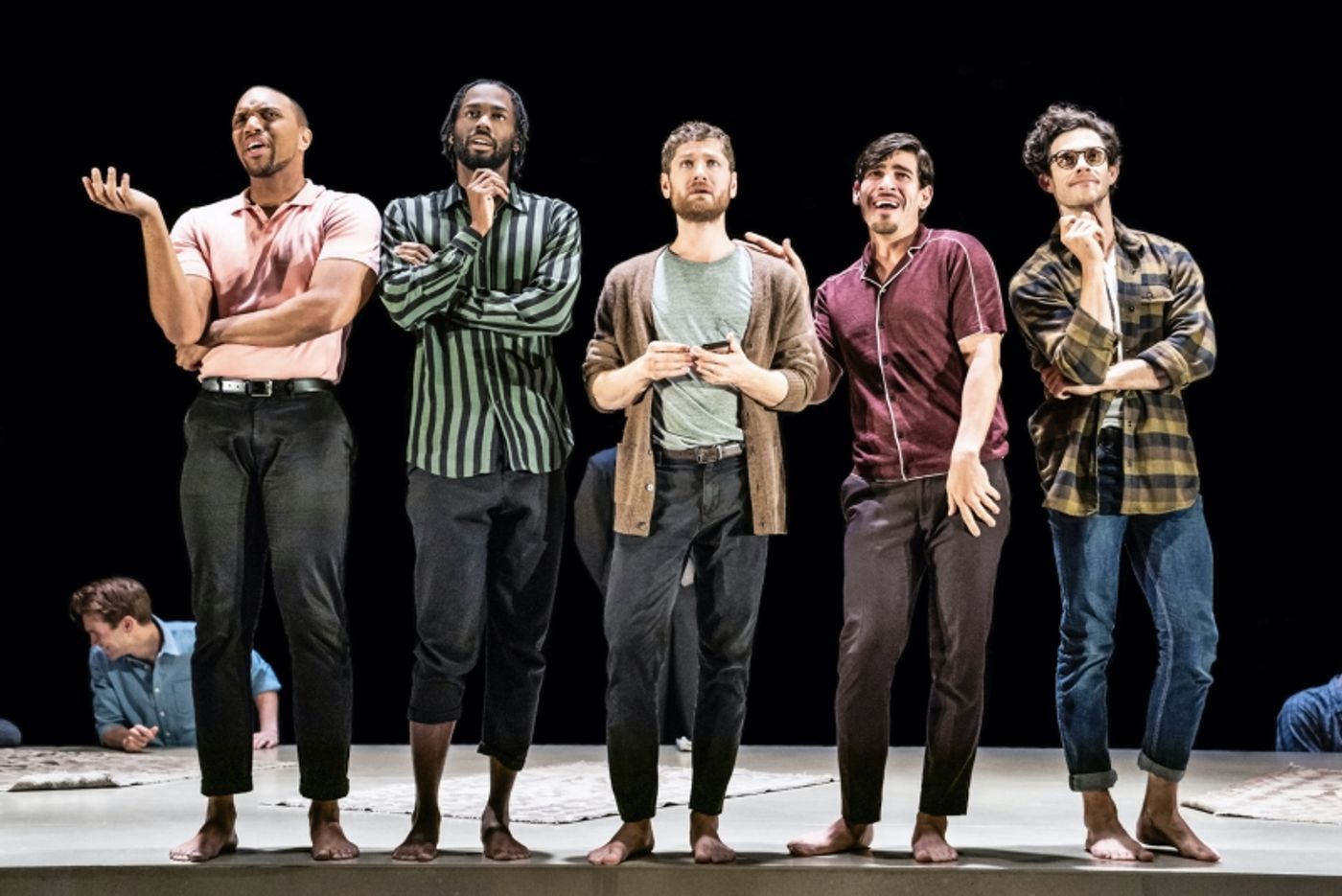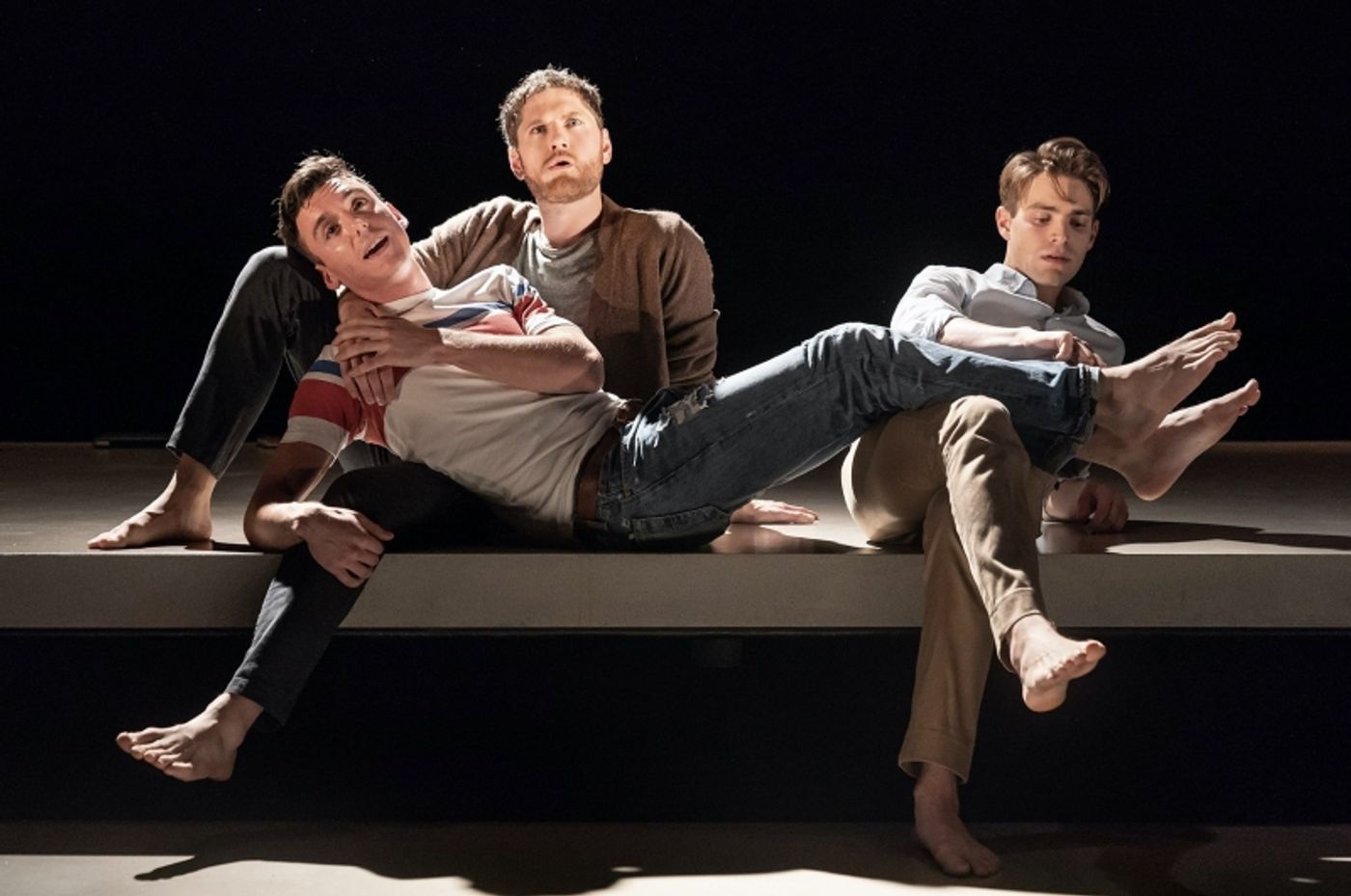BWW Exclusive: My Experience at THE INHERITANCE
The play examines AIDS a generation after the crisis.
A year ago Broadway went dark. It's been a huge loss to Times Square, the artists, the city and theater-lovers, but it's more than that. The theater can be the place where the seeds of societal change get planted. You see, a collective gets formed there. A never-to-be-recreated group comes together to experience something. It's a short-lived community of fidgeting, laughing, crying humans. And it's nothing less than alchemy as mere mortals transform from separate individuals into one golden audience.
On Wednesday, March 4th 2020, eight days before New York City theaters closed, Broadway was booming. I had tickets to see Matthew Lopez's, The Inheritance. It'd be a decadent seven hours - part one at the matinee, followed by a dinner break and then part two. Every seat in the house was taken. I settled into my lucky single-ticket-buyer's spot, stage left, third row orchestra with my maroon puffer coat cocooned around me. I sat between a man on my left and a woman with curls on my right.
The play examines AIDS a generation after the crisis. As a social worker on the AIDS unit of St. Vincent's Hospital at the peak of the epidemic, I was still putting the pieces of that time period together myself, constructing a narrative with all the fragments of what I saw and what I felt.

At the intermission, I chatted with the woman next to me who was too young to have seen the AIDS crisis firsthand. We talked about the play and I shared how eager I'd been to see it given my past experiences. She listened with interest.
When I was growing up in Queens my immigrant parents had the good instinct to get a TDF membership. I realized early on that the theater is more than entertainment. And while I didn't have words to explain it back then, researchers at The University College London Division of Psychological and Language Sciences have since found that audience members' hearts synchronize while watching live theater. With hearts beating as one, an audience can access an unprecedented feeling of communal empathy and empathy can lead to powerful social action and change. Reading about The Inheritance, I knew other people in the audience had also lived through the AIDS crisis and could relate to my feelings, but I hoped for something even more transcendent because I know the magic of theater.
Sharing my struggles in therapy often left me feeling exposed and ashamed, but at the theater it was different. When childhood sexual abuse got revealed in How I Learned to Drive the audience gasped and that's the moment I knew I wasn't alone. And in Jagged Little Pill the limitations of how Americans see consent and see race are explored and the reaction I heard, from us, the audience, gave me hope that outdated and unacceptable thinking was dying.
That winter day in March I watched The Inheritance on the edge of my seat. It took me to unexpected places-sublime and sorrow-filled. In his review Ben Brantley said, "I challenge any theatergoer with a heart not to cry during the sun-saturated scene that concludes the first half." I guess I have a heart, because I did cry. As the first part came to a close with a poignant display of all the beautiful and irreplaceable lives we lost to AIDS, my sobs came, loud and heaving.
The woman sitting in front of me must've heard my intermission conversation because she turned, looked into my eyes and whispered, "Thank you. You must've cared for some of my friends-so many of them died at St. Vincent's." She was crying, too. We all were.
The play ends without a curtain call. We're left with the impact of the moment. And even though it was over, my weeping continued. I'd rappelled into a ravine of un-grieved grief. Of remembrance and loss. Of love. I'd been there before, but this time I wasn't alone.

The woman on my right, curls framing her warm face, asked, "Is it okay if I touch you?"
"Yes," I said and she put her arm around me.
The man on my left had gone, leaving an empty seat beside me and the woman from the row in front of me replaced him, putting her arm around me on my other side.
These two women held me until the house emptied and I was out of tears.
Being held by strangers might seem odd and peculiar, but in just over a week from that day, Covid would make it seem dangerous, too. I think about the Ethel Barrymore theater and all the theaters. Silent and still and lifeless for the last three hundred and sixty-five days.
I didn't need theater to close to cherish it. The day I saw The Inheritance captured exactly why it's so important which is why I know what's at stake in its absence. Not just a fun evening or a bit of folly, but one of the ways we evolve as a culture. The catharsis we can have together. The power of words heard as one audience. And how those words and the feelings they evoke can heal us and change us.
Not everyone will have the extraordinary experience I did of being held at the theater, but the theater itself holds us all, providing a space where our hearts can sync for a few hours. And that collective sigh or gasp or laugh or sob of hundreds is transformative. When theater returns, I hope we value the community that gets created in those darkened rooms and realize how much we need it for our humanity - now, in fact, more than ever.
Michelle Fiordaliso is a writer and filmmaker who has been published in The New York Times, The Los Angeles Times and The Chicago Tribune. @michellecarmelafiordaliso
Videos


